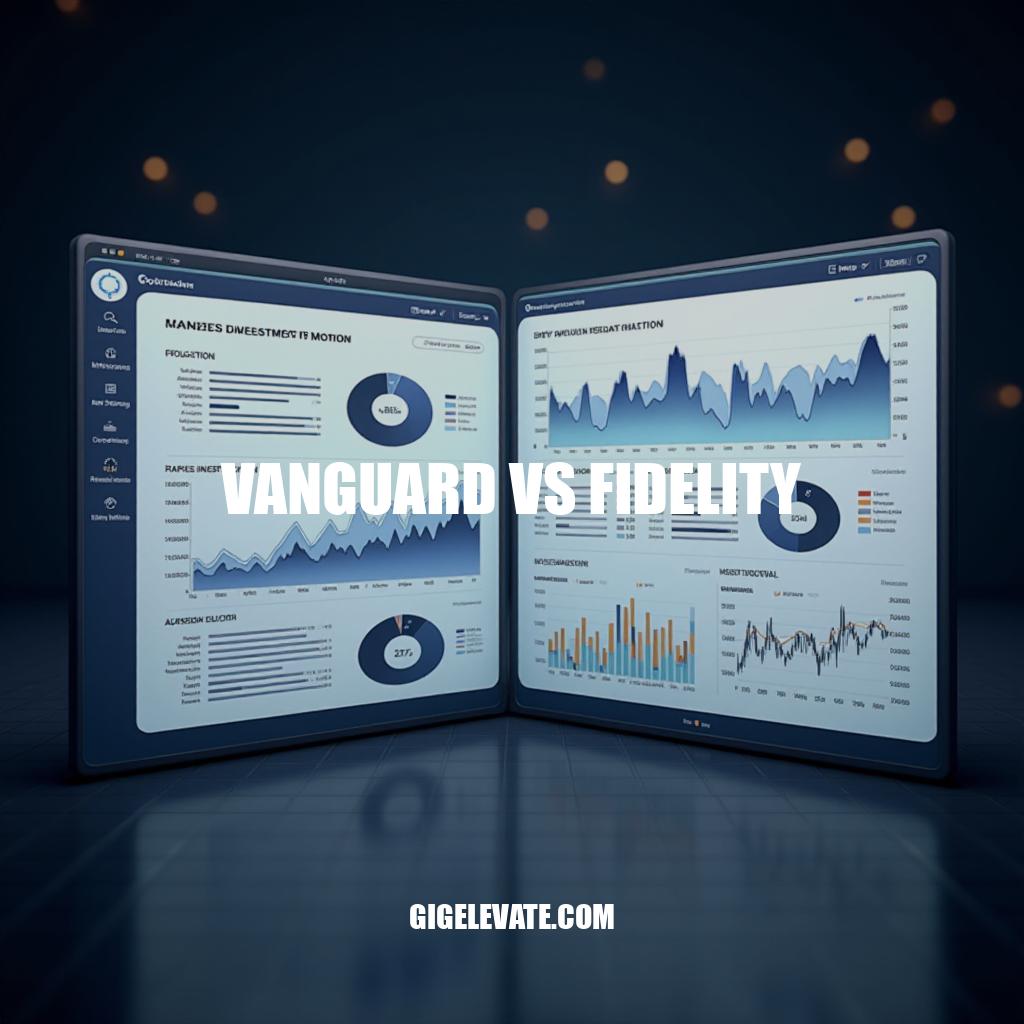
You’re looking to invest, but you need the right partner to help you reach your goals. When it comes to Vanguard and Fidelity, two big names stand out. Vanguard is known for its low-cost index funds and long-term strategies that can help you build wealth over time.
Fidelity, on the other hand, is all about innovation, offering a wide range of investments and a great customer experience. To make the right choice, it’s essential to understand how they differ from each other.
Comparison of Services and Features
Vanguard and Fidelity are two of the most prominent investment firms, each catering to a wide range of investor needs. Here’s a detailed comparison of their key services, investment options, fees, and user experience:
Key Services
-
Vanguard: Known for its focus on long-term, passive investing, Vanguard offers a variety of services, including retirement accounts (IRAs, 401(k)s), brokerage accounts, and financial advisory services. It emphasizes low-cost index funds and ETFs, making it a favorite for buy-and-hold investors.
-
Fidelity: Fidelity provides a more comprehensive suite of services, including retirement accounts, brokerage accounts, wealth management, and even banking services.
It caters to both passive and active investors, offering advanced trading tools and research resources.
Investment Options
-
Vanguard: Specializes in low-cost index funds and ETFs, with a strong emphasis on diversification. It also offers actively managed funds, but its primary appeal lies in its passive investment options.
-
Fidelity: Offers a broader range of investment options, including mutual funds, ETFs, stocks, bonds, and options. Fidelity also provides zero-expense-ratio index funds, which are highly attractive to cost-conscious investors.
Fees
-
Vanguard: Known for its competitive fees, Vanguard charges no commissions for trading stocks, ETFs, and most mutual funds.
However, it does charge a $1 contract fee for options and $49.95 for certain transaction-fee mutual funds.
-
Fidelity: Offers low to zero fees, including zero-expense-ratio funds. It charges $0.65 per options contract and $20 for certain transaction-fee mutual funds. Fidelity’s fee structure is slightly more favorable for active traders.
User Experience
-
Vanguard: Provides a stable and consistent platform, but its technology and user interface are often considered less advanced compared to competitors.
It is more suited for investors who prioritize simplicity and reliability.
-
Fidelity: Excels in user experience with a highly intuitive and user-friendly platform. Its advanced tools and mobile app are designed to cater to both novice and experienced investors, making it a versatile choice.
Catering to Investor Needs
-
Vanguard: Ideal for long-term investors who prefer a hands-off approach and value low costs. Its focus on passive investing aligns well with retirement planning and wealth preservation.
-
Fidelity: Better suited for active traders and those seeking a more dynamic investment strategy.
Its comprehensive services and advanced tools make it a one-stop shop for diverse financial needs.
Both firms have their strengths and are tailored to different types of investors. Vanguard is the go-to for those who prioritize low costs and long-term growth, while Fidelity offers a more versatile platform for active and diverse investment strategies.
Investing with Vanguard vs Fidelity
When it comes to investing, Vanguard and Fidelity are two prominent names that stand out for different reasons.
Vanguard is known for its low-cost index funds and long-term strategies, making it ideal for investors who prioritize simplicity and reliability. Its focus on passive investing aligns well with retirement planning and wealth preservation.
On the other hand, Fidelity offers a more comprehensive suite of services, including advanced trading tools and research resources, making it better suited for active traders and those seeking a more dynamic investment strategy.
While both firms have their strengths, Vanguard is the go-to for long-term investors who value low costs, while Fidelity provides a versatile platform for diverse financial needs.
Ultimately, the choice between Vanguard and Fidelity depends on your individual investment goals and preferences. If you’re looking for a hands-off approach with low costs, Vanguard may be the better fit. However, if you’re an active trader or seeking a more dynamic investment strategy, Fidelity’s comprehensive services and advanced tools make it a one-stop shop for diverse financial needs.


